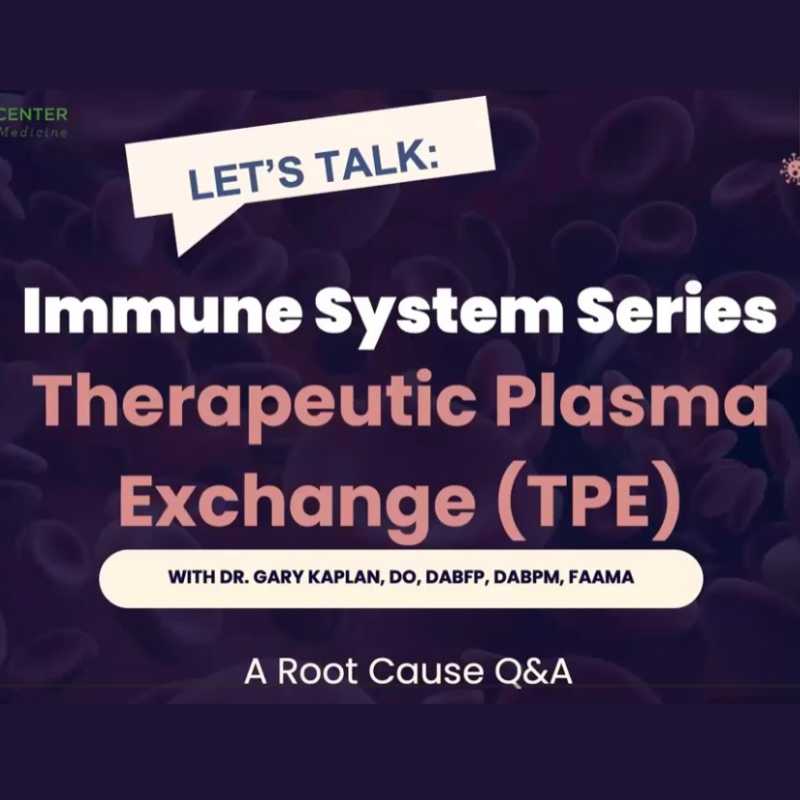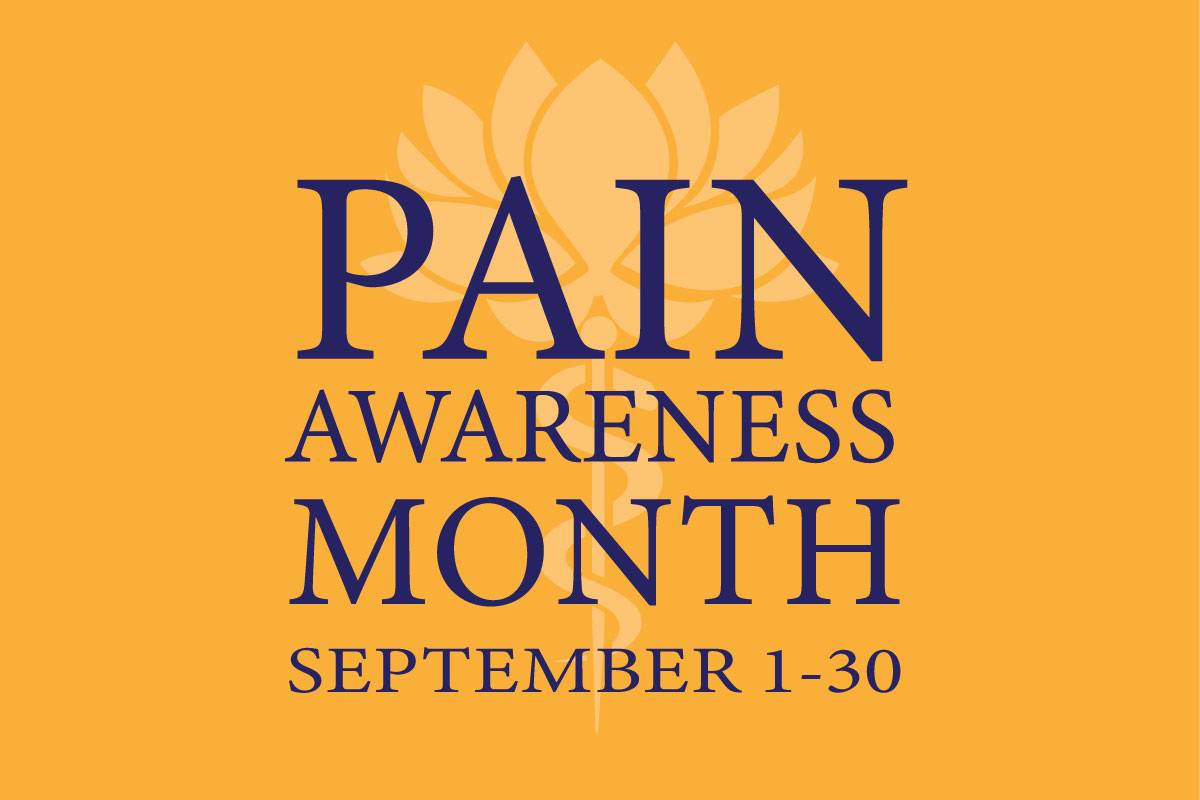
5 Ways We Can Keep Your Immune System Strong
December 10, 2025/by Kaplan Center
Want to Take Your Workout to the Next Level Next Year? These Tips Can Help
December 8, 2025/by Kaplan Center
Dr. Kaplan’s Dos and Don’ts of the Holiday Season
December 3, 2025/by Kaplan Center
Let’s Talk Webinar – A Root Cause Q&A
December 2, 2025/by Kaplan Center
Navigating Holiday Meals with Gut Issues: Simple Tips for a Comfortable Season
December 1, 2025/by Chardonée Donald, MS, CBHS, CHN, CNS, LDN
Craniosacral Therapy for TMJ | Say Goodbye to the Daily Grind
November 19, 2025/by Patricia Alomar, M.S., P.T.
From Compassionate Care to Personal Healing: A Letter to My Patients
November 18, 2025/by Kaplan Center
8 Steps to a Healthier Gut—and a Longer, Healthier Life
November 18, 2025/by Kaplan Center
Mid-Life Irritability & Fatigue Improved by Hormonal Balancing
November 13, 2025/by Lisa Lilienfield, MD
From Challenges to Change: Dr. Kaplan on Healthcare’s Biggest Challenges
October 29, 2025/by Kaplan Center
Overlooked Dangers of Mold Exposure and How to Stay Safe – Dr. Kaplan Talks to WUSA9
October 27, 2025/by Kaplan Center
Let’s ‘Fall’ Into Wellness: A Nutritionist-Approved Immune-Boosting Recipe for Cold and Flu Season
October 13, 2025/by Chardonée Donald, MS, CBHS, CHN, CNS, LDN
PANS/PANDAS – When Sudden Symptoms Signal Something More
October 9, 2025/by Kaplan Center
Beating Burnout, A Nutritionist’s Perspective
October 1, 2025/by Chardonée Donald, MS, CBHS, CHN, CNS, LDN
3 Things That Can Happen After Stopping GLP-1s
September 11, 2025/by Chardonée Donald, MS, CBHS, CHN, CNS, LDN
What Families Need to Know About COVID and Flu Season
September 3, 2025/by Kaplan Center
September is Pain Awareness Month
September 1, 2025/by Kaplan Center
Dr. Kaplan Spoke to Northern Virginia Magazine About COVID, Flu, and Immunity — Here’s What You Should Know
August 14, 2025/by Kaplan Center
“Why Do I Feel Like Crap?”: The Overlap Between Long COVID and Perimenopause
July 30, 2025/by Kaplan Center
Why People Are Turning to EMDR (and Why You Might Want to Too)
July 23, 2025/by Kaplan CenterAre you looking to improve your overall wellness?
Personalized care you can trust.
Our integrative, non-surgical treatment approach is highly successful in maintaining wellness and also treating chronic pain and illness. For more than 30 years, we have delivered superior, cutting-edge health care in the Washington, DC area.
QuickLinks
Contact Information
Tel: 703-532-4892
Fax: 703-237-3105
6829 Elm Street, Suite 300
McLean, Virginia 22101
Map It
Hours of Operation
Mon – Thu : 8 am – 5 pm, ET
Fri : 8 am – 12 pm, ET
What Texting Does to the Spine
/in Conditions, Hormone Health/by Kaplan CenterDid you know that your head becomes 5 times heavier when your head position is bent down to text? In fact, each degree of forward tilt adds a tremendous strain on the neck and its muscles such as the levator scapulae that are attached from the shoulder blades to each side of the neck.
At a minimum, when these muscles are stretched for a long time or misused it can lead to headaches; other more serious symptoms can include dizziness, herniated disks, pinched nerves, neck sprain, and abnormal posture (by compensation).
“Text Neck Syndrome,” also called forward head posture, can not only lead to chronic pain and postural problems but can be an important clue to the existence of underlying health issues, like hormonal changes, nutritional issues, facet arthritis, or emotional stress.
Treatments for Texting Neck Syndrome
At the Kaplan Center, we offer osteopathic manipulative therapy, postural rehabilitation, PRP, injection therapy, and physical therapy to correct those ailments. Furthermore, nutritional and hormonal correction, when indicated, can have a formidable impact on improving the musculoskeletal system. For men and women over 40, we recommend checking your testosterone level for general health and improving strength and libido. The impact of testosterone is well known on overall vitality which leads to a better tone in the muscle and standing upright as opposed to slouched with fatigue (see diagram below on the effects of testosterone).
Bottom line: If you have neck pain, don’t ignore it as it’s likely to worsen over time and cause more serious problems later in life. Get yourself checked and tested so we can help you feel better now.
We are here for you, and we want to help.
Our goal is to return you to optimal health as soon as possible. To schedule an appointment please call: 703-532-4892 x2
LISTEN NOW: Dr. Gary Kaplan on Overcoming Chronic Illness Podcast
/in Wellness/by Kaplan CenterDr. Gary Kaplan was recently interviewed on the Overcoming Chronic Illness podcast, hosted by Dr. Bryan Rade ND. Dr. Rade interviews Dr. Kaplan about his extensive experience with treating complex chronic illnesses.
You can access the podcast via any podcast streaming website/app (Apple Podcast link below).
This podcast can also be viewed on YouTube at https://youtu.be/iYY0Qjeh1tk.
There are over 20 million Americans suffering from a group of chronic disabling disorders who are diagnosed without a clear elucidation of pathophysiologic mechanisms. Fibromyalgia, Myalgic Encephalomyelitis/ Chronic Fatigue Syndrome (ME/CFS), Neuropsychiatric illnesses, Posttreatment Lyme Syndrome, Pediatric Acute on Neuropsychiatric Syndrome (PANDAS/PANS).
Adding to this massive disease burden the CDC now estimates that of the 40% of Americans who were infected with COVID-19 1 in 5 continue to suffer with what is now referred to as Post-acute sequelae of COVID (PASC). Research has demonstrated that common to all of these conditions is dysregulation of the immune system resulting from an infectious insult. Dramatic advances have occurred in our understanding of all of these conditions as a result of COVID. We are entering an incredibly exciting period in medicine where these diseases are beginning to coalesce around an understanding of shared pathophysiology. We are entering a period of true hope for those millions who are suffering where we will finally be able to provide comprehensive solutions for their illness.
This conference will bring together some of the leading researchers and clinicians from around the world to discuss the advances in our understanding of these conditions and breakthroughs in diagnostic and treatment options.
For more info and to register, visit https://medstar.cloud-cme.com/course/courseoverview?P=0&EID=20362
Health Benefits of Vitamin D
/in Bone Health, Nutrition, Wellness/by Gary Kaplan, DOThough there is an abundance of research on the health benefits of Vitamin D, some estimate that up to 50% of certain populations in the US may have lower than advisable levels in the body. Furthermore, there is no consensus on the definition of what constitutes a deficiency, making analysis of the scale of the problem more difficult.
Mechanisms of Vitamin D
Vitamin D receptors are present in nearly every tissue and cell in the body, making it essential in maintaining many of the body’s physiological functions. At a minimum, it maintains bone health by helping the body to absorb calcium, keeping bones healthy and strong. A deficiency over a prolonged period of time can lead to a loss in bone density and a higher likelihood of fractures and falls as a person ages.
We also know that adequate Vitamin D levels can lower the risk of developing heart disease. Research shows an inverse relationship between Vitamin D and C Reactive Protein (CRP), which is a marker associated with heart disease (the higher the CRP levels, the higher the risk of heart disease). Higher CRP levels are also indicative of other inflammatory illnesses in the body.
Vitamin D is essential for the normal and healthy functioning of the immune system. When adequate levels are not maintained, the microglia – the immune cells of the Central Nervous System that initiate temporary inflammatory responses to attack foreign invading organisms – are unable to function optimally. Subsequently, people with low levels of Vitamin D are at higher risk of developing a host of inflammatory conditions such as Arthritis, Multiple Sclerosis, Diabetes, migraines, Depression, Fibromyalgia, and various forms of cancer.
Vitamin D Intake
Vitamin D can be obtained in the following ways:
How much is enough?
Vitamin D is a fat-soluble vitamin, which means that it is stored by the body in fat tissue and remains on reserve for future use. This also means, of course, that it is possible to reach toxic levels if too much is taken.
The Institutes of Medicine (IOM) recommends supplementation of up to 600 IUs per day, and up to 800 IUs per day for those over 70 years old. The IOM also suggests, however, that a person may need a much larger dose depending on his/ her state of health.
These are general recommendations – the only way to determine appropriate dosage is by having serum levels measured by asking your doctor to order a “Vit. D 25-OH-D” test (also called Vit. D 25, Hydroxy). This is the best test to accurately determine if you have adequate levels of Vitamin D in your body.
Serum levels are considered normal in the 30-100ng/ml range, but when the goal is optimal health, maintaining a level of 50-70ng/ml is ideal.
We are here for you, and we want to help.
Our goal is to return you to optimal health as soon as possible. To schedule an appointment please call: 703-532-4892 x2